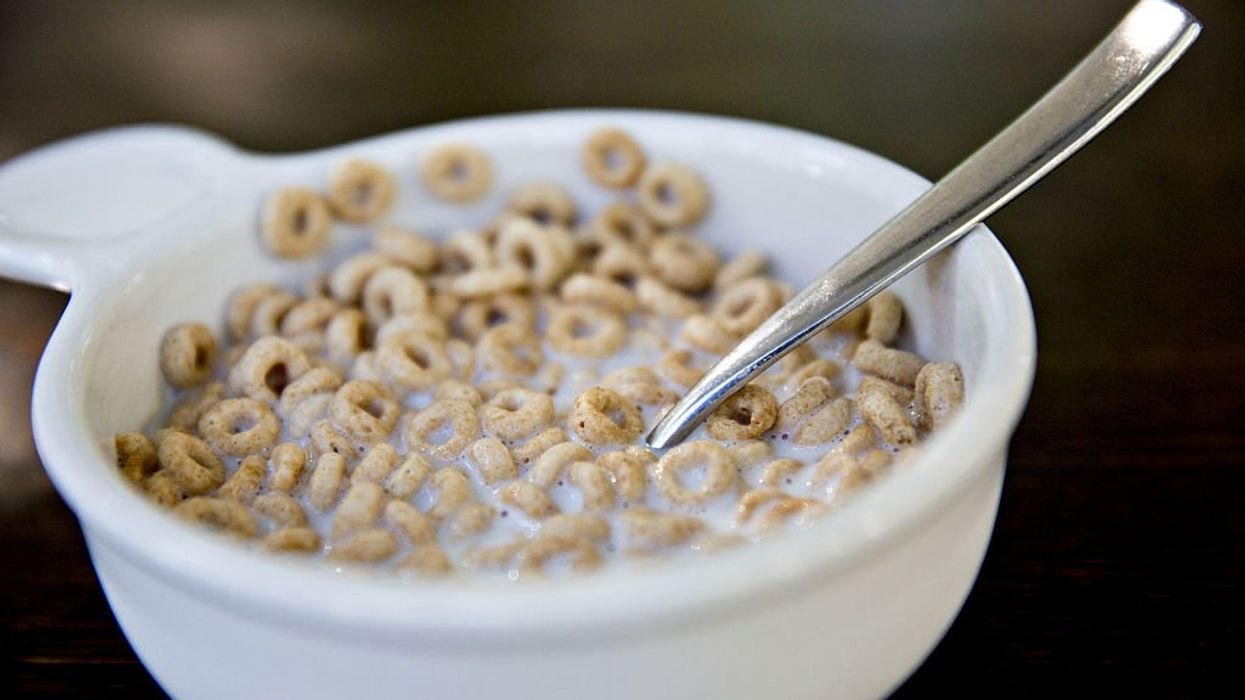
Daniel Acker/Bloomberg via Getty Images

The vast majority of Americans have been exposed to a toxic agricultural chemical that has been linked in animal studies to disrupted fetal growth, damage to the reproductive system, delayed puberty, and reduced fertility, according to a new peer-reviewed paper published in the Journal of Exposure Science and Environmental Epidemiology.
The study, executed by the Environmental Working Group — a chemical watchdog and activist group that has been accused in recent years of alarmism and exaggeration — examines concentrations of chlormequat chloride in oat-based foods and suggests that current exposure levels "warrant more expansive toxicity resting, food monitoring, and epidemiological studies."
Chlormequat was first registered in the U.S. in 1962 as a plant growth regulator that successfully inhibits cell elongation, producing sturdier stalks that are less likely to bend over — particularly beneficial for cereal crops.
The chemical, which the U.S. Environmental Protection Agency apparently recognized as "toxic to wildlife," has been found to take a toll on mammals.
The new study highlights how Danish pig farmers noticed in the 1980s "reproductive declines in pigs raised on chlormequat treated grains." Their observations were reportedly replicated in a controlled lab environment where female pigs fed chlormequat treated grain "exhibited disrupted oestrus cycling and difficult mating compared to animals on a control chlormequat-free diet."
Male mice, similarly exposed to the chemical via food or water, "exhibited decreased fertilization capacity of sperm in vitro."
When proposing to register new uses of the plant growth regulator as a pesticide in April 2023, the U.S. Environmental Protection Agency claimed there were "no dietary, residential, or aggregate (i.e., combined dietary and residential exposures) risks of concern associated with human exposure to chlormequat.
However, the study suggests that "more recent reproductive toxicity studies on chlormequat show delayed onset of puberty, reduced sperm motility, decreased weights of male reproductive organs, and decreased testosterone levels in rats exposed during sensitive windows of development, including during pregnancy and early life."
The EWG researchers conceded that other studies have not found such animal test subjects similarly impacted but intimated that such discrepancies simply warrant further investigation.
Chlormequat, which can form naturally from choline precursors in wheat products and egg powder under high temperature, reportedly entered the American food supply after the EPA published acceptable food tolerance levels for the pesticide in imported oat, wheat, barley, and other products in 2018.
These allowable levels were reportedly increased for oats in 2020. While admitting imported products containing traces of chlormequat, the EPA reportedly only allows the chemical to be used on ornamental plants grown in the U.S..
The EWG researchers examined 96 urine samples collected from American residents in three geographical regions between 2017 and 2023. The study notes that the pesticide was detected in 80% of all urine samples.
"Detection frequencies were higher in 2023 samples compared to 2017 and 2018 to 2022 samples with 16 of 23, or 69%, 17 of 23, or 74% and 45 of 50, or 90% of samples with detections, respectively," said the study.
The EWG researchers noted that food samples purchased from 2022 and 2023 "show detectable levels of chlormequat in all but two of 25 conventional oat-based products." Quaker Oats and Cheerios were allegedly among the affected cereals.
While the pesticide concentrations in urine taken up in this study were "several orders of magnitude below the reference dose (RfD) published by the U.S. EPA," the EWG indicated that much lower doses have been observed to reduce fertility in mice and pigs.
"Given the toxicological concerns associated with chlormequat exposure in animal studies, and widespread exposure to the general population, in European countries, and now also likely in the U.S., monitoring of chlormequat in foods and people, in conjunction with epidemiological and animal studies, is urgently needed to understand the potential health harms of this agricultural chemical at environmentally relevant exposure levels, particularly during pregnancy," the researchers concluded.
The EWG suggested in a report corresponding with its study, "Until the government fully protects consumers, you can reduce your exposure to chlormequat by choosing products made with organic oats, which are grown without synthetic pesticides such as chlormequat."
The New York Post indicated that neither General Mills, which produces Cheerios, nor PepsiCo, which makes Quaker Oats, responded immediately to requests for comment.
"The federal government has a vital role in ensuring that pesticides are adequately monitored, studied and regulated," Alexis Temkin, a toxicologist at EWG and lead author on the study, told the Daily Mail. "Yet the EPA continues to abdicate its responsibility to protect children from the potential health harms of toxic chemicals like chlormequat in food."
Like Blaze News? Bypass the censors, sign up for our newsletters, and get stories like this direct to your inbox. Sign up here!